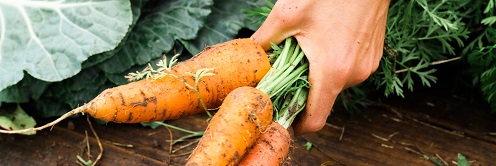What is Urban Farming?
 Approximately half of all Danes live in medium or large cities, and fewer than 700,000 live in decidedly rural areas. This also reflects the global urbanisation, in which people across the world move from rural areas to cities.
Approximately half of all Danes live in medium or large cities, and fewer than 700,000 live in decidedly rural areas. This also reflects the global urbanisation, in which people across the world move from rural areas to cities.
An increasing population and the continuous reduction of cultivated land, together with climate change, pose significant challenges for our food production systems, leading to current issues regarding food production levels, nature and the environment.
Therefore, we need to consider how we address Danish as well as global food production challenges now and in the future. In the knowledge group Urban Farming SCIENCE, it is the opinion that many solutions to future resource challenges lie in the reassessment of elements of our food production, and urban farming can help solve some of our challenges.
However, a considerably better framework for urban farming will be needed to make a significant difference, and it will require authorities and private participants to invest in research that can increase our knowledge of how and why urban farming can contribute to a sustainable development where cities and communities are characterised by a circular economy.
What is urban farming?
Urban farming is defined in numerous different ways. In Urban Farming SCIENCE, we work with urban farming as a concept that covers initiatives involving urban resources in food production, either directly or peripherally, by involving various degrees of urban resources in local food production and supply. This could include a suburban vertical factory producing insects; an industrial plant that recovers sludge and waste from the city to be used in food procution; a production facility in the vicinity of medium-sized cities, or something entirely different.
Urban farming can also include initiatives where the primary focus is on the social, biodiversity and sensing aspects of urban cultivation. Read more about the different research topics we work with in Urban Farming SCIENCE.
What does an urban farm produce?
Everything from rooftop vegetable production, mushrooms cultivated in coffee grounds and spice production in hydroponic pools, to large plants or farms that recycle waste and nutrients from city wastewater and household waste as part of their production system.
Where does urban farming take place?
In developed economies, there are few examples of commercially viable high-value production systems that exist within or near city limits and the focus is often on social integration projects or high tech vertical farming initiatives. In Western European countries, urban farming is often carried out on a smaller scale and is not as such part of the regular food production. Urban Farming SCIENCE works to elevate the principles of urban farming to a level at which it contributes and makes a difference to existing food and agricultural production, consumers, the economy and the environment.
For urban farming, the situation is very different in other parts of the world, where food products from urban agriculture account for a substantial part of the daily food supply and possible income for urban residents.
Who does urban farming?
In Denmark and other Western European metropolitan areas, many urban farming initiatives are on a voluntary basis or are supported by non-profit initiatives. However, it is possible to expand the perception of urban farming, so it becomes relevant to diverse companies types, as well as to the agricultural industry, politicians, authorities and institutions.
Why urban farming?
Urban farming is about preparing for the future. As a production system it will form part of the urban infrastructure in the future. Urban farming businesses will not only create employment but will also become an essential element of the circular economy.
Urban Farming's production systems will enable efficient recycling of water and urban waste, enable efficient energy consumption and reduce the depletion of natural resources. Cities are in charge of majority decisions, and urban farming is part of the solution to future challenges associated with food supply and the increasing urbanisation - here we can contribute our knowledge of cultivation, resources, marketing, markets, health and food.
How does Urban Farming SCIENCE engage in urban farming?
In the Urban Farming SCIENCE knowledge group, we view urban farming as urban production systems, which form part of the food or biomass production in one or more process stages, both directly and indirectly, through elements such as social social and biodiversity impacts.
See our expert list of researchers from Urban Farming Science.
